Panchayat Season 4: The Pioneer Of The Slow Movement Continues To Trudge Along
Panchayat has begun to lose both its innocence and its staying power, but it still remains streaming’s beacon of slow, steady and sensitive.
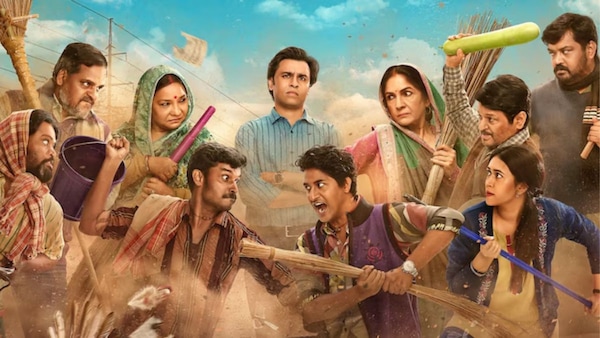
Promo poster for Panchayat season 4.
Last Updated: 11.33 AM, Jun 24, 2025
IN A SCENE from the fourth season of Amazon Prime Video’s Panchayat, Sachiv ji, played by Jitendra Kumar, is abruptly tasked with accompanying an old man to a house in the village. At first, he offers a lift on his bike. When refused, he tries walking beside the senior citizen, outpacing without trying or realising. A couple of times, he stops, then returns to the side of his new acquaintance — puzzled, embarrassed, a bit indignant. It’s a scene that locates, rather precisely, the ethos of one of India’s most beloved streaming shows within the larger space era of its conception. In an age of diminishing attention spans, binge-watching marathons, crime, thrill, sleaze and easy denouement, Panchayat remains a calm, eerily composed, and at times confounding specimen of modesty. To the point that this series demands not your indulgence, but your alacrity. In its fourth season, Panchayat retains its offbeat, steady charm even though the demands of a fail-fast-break-things world are beginning to close in on its purity.
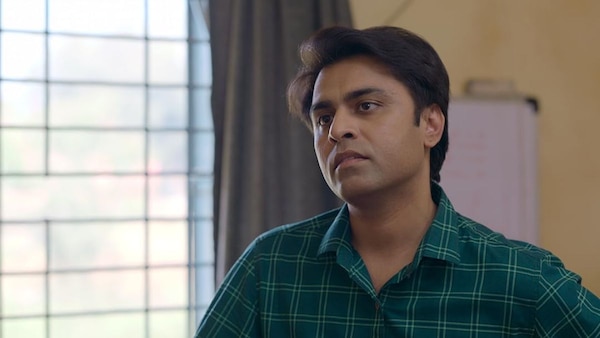
Now, a show about Phulera village — as opposed to the Sachiv-anchored journey of the first two seasons — Panchayat has expanded into a macro-economic view of rural life. This fourth season begins in the aftermath of a frantic — and maybe unnecessary — all-out brawl between adversaries that made up the climax of the underwhelming third season. Pradhan ji (Raghubir Yadav) has been mysteriously shot and injured. Pretty much everyone has returned from jail. And the spectre of a re-election hangs over the discomforting air of what was once a peaceful haven of friendship and camaraderie. That the show has been forced into the antics of thrill, rather than the depths of emotion, became apparent in the last season. In its fourth, it thankfully, takes a step back.
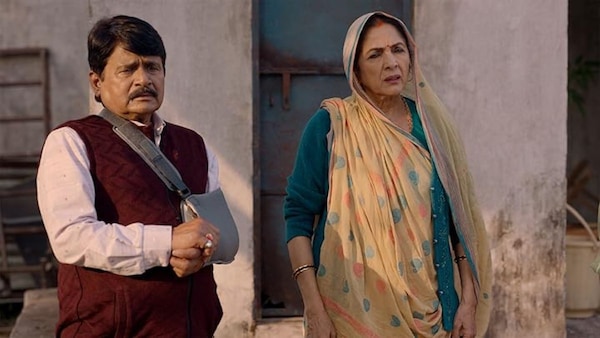
The re-election battle between Manju Devi (Neena Gupta) and Kanti Devi (Sunita Rajwar) takes centre stage, swerving between seriousness, satire and tragedy. One of the show’s enduring strengths is its ability to pull away the rug of cosiness to momentarily paint the socio-economic desperation of its characters. It may evade the lens of poverty porn, but Panchayat manages to communicate its dire circumstances of its many characters, without attaching them to the stench of victimhood. In a way, that makes its cuts of sensitivity deeper and incisive. In one long-drawn scene, for example, Pradhan ji and his band of brothers try to coax a competitor to switch sides. The bribes are as humble as a laddoo or a meal full of puris. To a lesser show, it would be the cue to draw on the sequence’s capacity for self-effacement; a world so impoverished, even its sense of greed feels like an insult to the ghost of dignity. But Panchayat has always operated with the lens of empathy. It does for the characters on the margins, that no story has — give them agency. And therefore, not every bribe works, not every human is up for sale.
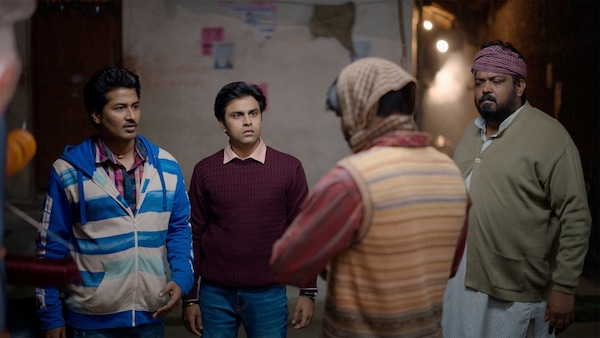
The fact that the show is now a familiar drawing room experience has begun to collectively weigh in on its pathology. It wants to create conflict, without reflecting on its value propositions. You can sense it reeling under the pressure of “what next” because that is what a fourth season would invariably bring. There is, therefore, more bite, a hint of toxicity and the peril of turning the sterility of a Phulera into the vanity and masculinity of, say, a Mirzapur. Guns have been fired, violence enacted, and toxic sludge hurled across the lines of battle. It’s not where the show was supposed to go, but given its shelf life, it’s where we have arrived. Dirt and grime were destined to accumulate. And so Sachiv ji contemplates the end of a potential corporate career — his CAT result comes out right next to the elections — now that he has a police report against his name. Pradhan ji is confronted by accusations of self-sabotage. While Prahlad Cha (Faisal Malik) and Vikas (Chandan Roy) — often the beating hearts of this show — come to an emotional crossroads of sorts. It’s all happening, but not quite with the same, cohesive tenor as the first two seasons.
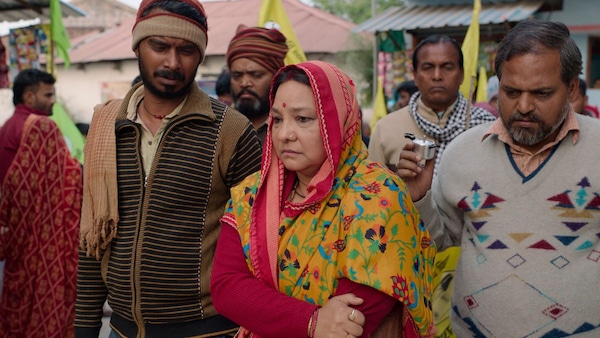
Panchayat has clearly lost a bit of its innocence along the way. But it remains this peculiar, slow-paced meditation on the very idea of entertainment. If you step back and think about it, the stakes, the urgency are never breakneck. Even a police raid meant to intimidate is carried out with the lethargy of a geographic survey. And perhaps that’s the point. We live in an age where entertainment comes twined with the ghost of time and relevance. One simply can’t reconcile one with the other. In this very moment, Panchayat urges you to consider the minutiae of life, or at least sit with it. Watch grown men and women haggle over lauki, exploding pressure cookers, inaccessible toilets, small-time cash loans and the virtuous, game-changing idea that privilege alone shouldn’t guarantee gravity. Away from the noise and vanity of the city, the Indian village grapples not for riches but for adequacy. Not necessarily because it's desperate, but because one’s purpose is acquired and not granted. Panchayat might have lost some of its original verve, but it’s still a fairly unique miracle in an otherwise hyper-masculine calendar of content. If only it can stay the course and perish like it was always meant to — gracefully.
Panchayat Season 4 is now streaming on Prime Video.
